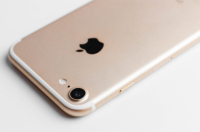Researchers develop flexible, stretchable photonic devices. Researchers at MIT and several other institutions have developed a method for making photonic devices -- similar to electronic devices but based on light rather than electricity -- that can bend and stretch without damage. The devices could find uses in cables to connect computing devices, or in diagnostic and monitoring systems that could be attached to the skin or implanted in the body, flexing easily with the natural tissue.
A new moneymaker for biofuel. A Sandia National Laboratories-led team has demonstrated faster, more efficient ways to turn discarded plant matter into chemicals worth billions. Lignin, the tough material left over from biofuel production, contains compounds that can be converted into products like nylon, plastics and drugs. It is one of the main components of plant cell walls, and gives plants structural integrity as well as protection from microbial attacks. Products made from converted lignin could subsidize biofuel production, making the cost of biofuels more competitive with petroleum.
Fabric as personal air conditioner. Researchers have developed a new material for clothing that we could one day don as our own personal cooling unit, without any external energy needed to power it. The researchers combined boron nitride -- a material that transfers heat -- and polyvinyl alcohol to create a nanocomposite fiber that can be 3-D printed and woven into fabric. Testing to simulate the material on skin showed that the composite is 1.5 to 2 times more efficient at moving heat away from the body when compared to pure polyvinyl alcohol or cotton fabrics, respectively. Making clothes with the nanocomposite thread could help keep wearers comfortable and reduce the need to cool entire buildings, the researchers say.
Blue light helps you relax after argument. Using electrophysiological measurements, researchers have established that blue lighting accelerates the relaxation process after acute psychosocial stress – such as while arguing with a friend or when someone pressures you to finish a certain task as soon as possible – much faster in comparison with conventional white lighting.
Frequent alcohol drinking kills new brain cells. Researchers from The University of Texas Medical Branch at Galveston recently discovered that alcohol killed the stem cells residing in adult mouse brains. Because the brain stems cells create new nerve cells and are important to maintaining normal cognitive function, this study possibly opens a door to combating chronic alcoholism. The researchers also found that brain stem cells in key brain regions of adult mice respond differently to alcohol exposure, and they show for the first time that these changes are different for females and males – females are more vulnerable.




